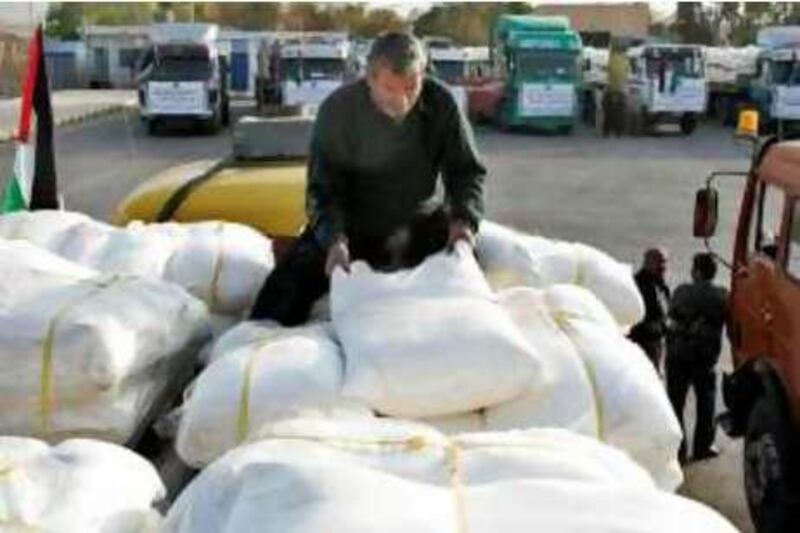GAZA CAMP, Jordan // Ameera Hajjari, 50, could not take her eyes off the television as she bounced her six-month-old granddaughter on her lap, with images of carnage in Gaza repeating on the screen. "I am trying to see how the Arab countries are going to react, if they are feeling with the Palestinians," she said. "The human remains that were pulled from underneath the rubble give me goose bumps. I couldn't eat since the morning." Among the Palestinians at the Gaza Camp in Jordan, set up in 1968 for those who fled after the creation of Israel and the 1967 Arab-Israeli war, there is growing anger at Arab countries for not doing enough to end the bloodshed in the occupied territories. While all Arab countries have condemned the strikes by the Israeli army that have killed over 300 people so far, many here expressed the sense that Arab countries could have done more. But an even greater betrayal they say, is what some believe is the tacit support for the incursion in some Arab circles in an attempt to undermine Hamas. "The problem is that Arab states before were criticised and condemned for their passivity and now people are accusing them of open complicity," said Mouin Rabbani, a senior Middle East analyst. Some Palestinians have pointed to Egypt's decision to keep its border with Gaza closed as evidence of its complicity. Others have said that Mahmoud Abbas, the Palestinian president, whose Fatah party was thrown out of Gaza by Hamas in 2007, also backed the strike as he wanted to wield power over both the West Bank and the Gaza Strip. Some analysts have suggested that Cairo sees Hamas as a threat due to its links with the Muslim Brotherhood, an influential but banned Islamist group in Egypt. "There are parties, and not necessarily those bordering Gaza, who see that Hamas could be a hub for an Islamic ascendancy or an expansion for Iran," said Samih Maaytah, a political commentator for the Alghad, a daily newspape in Amman. A few kilometres from the Gaza camp, home to more than 27,600 Palestinians, a sign put up by the Muslim Brotherhood urged the camp's residents to fast yesterday and to raise black flags to signify mourning. "We are against terrorism, but what's going on in Gaza could lead to extremism because people's demands are not heeded? and that is the liberation of Palestine," said Suleiman Enaiz, an engineer. Jordan and Egypt are the only Arab states which have signed peace treaties with Israel. Some analysts say Israel is seeking to destroy Gaza and attack Hamas' strongholds in order to dictate its own conditions for any peace. "Those in the Palestinian or Arab arena who believe that destroying the resistance movement in Gaza and the West Bank and halting the Palestinian rockets will strip Israel of its pretexts in evading a just and comprehensive peace are only delusional," wrote Fahed Kheitan, a columnist and editor at Arab al Yawm. "Israel simply doesn't want peace with the Arabs and the Palestinians? it wants to enforce its own conditions for a solution that meet its own interests." "When it comes to the interests of our country and our kingdom, we must be all on the same side to defend it no matter what the costs are. And let King Abdullah's statements that condemn the aggression and call for its end be the headline of an Arab and international campaign against Israeli crimes." King Abdullah II and the Saudi monarch, Abdullah Bin Abdul Aziz, have warned that Israeli aggression could impact the whole region. They agreed to continue co-ordination to end the assaults and alleviate the suffering of the Palestinians. Yesterday, Jordan sent aid convoys of food and medical supplies and thousands of blood units to Gaza, Jordan's state-run news agency, Petra, reported. smaayeh@thenational.ae
Palestinian refugees feel betrayed by Arab nations
Many call for untitled response to Gaza carnage while others accuse some Arab states of tactly supporting Israeli incursions to sideline Hamas.

Editor's picks
More from the national




